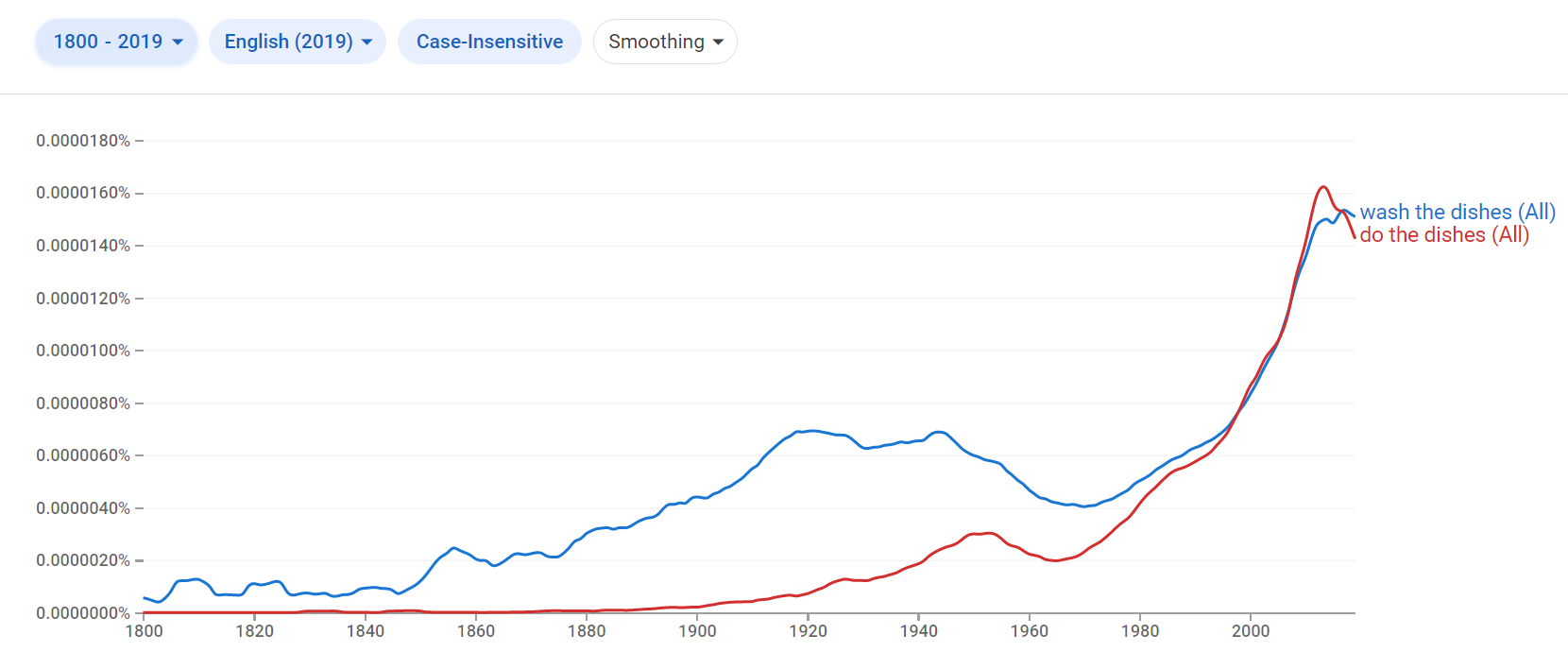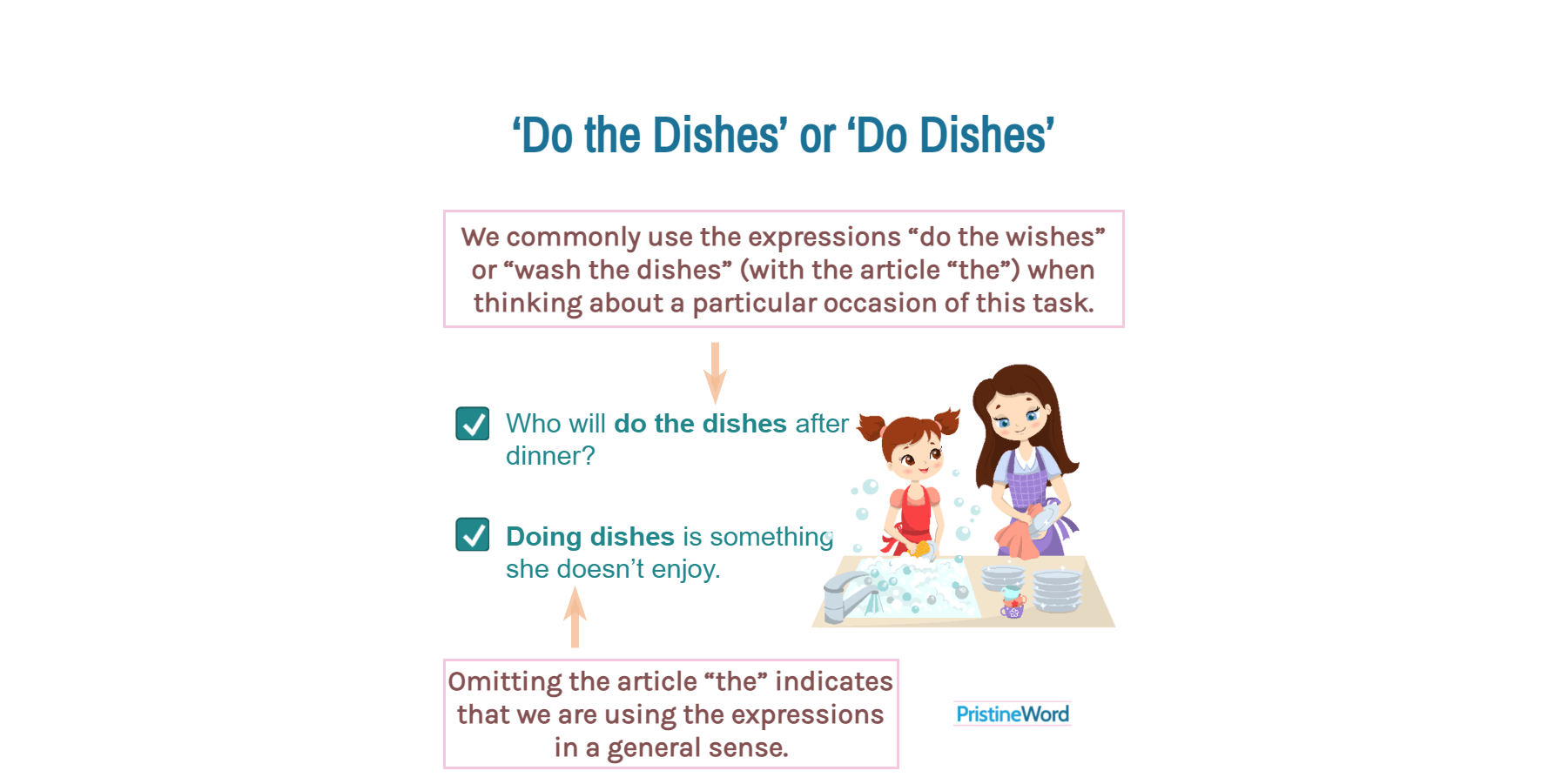We commonly use the expressions “do the wishes” or “wash the dishes” (with the article “the”) when thinking about a particular occasion of this task.
We commonly use the expressions “do the wishes” or “wash the dishes” (with the article “the”) when thinking about a particular occasion of this task.
Who will do the dishes after dinner?
My mother wants me to wash the dishes today.
Omitting the article “the” indicates that we are using these expressions in a general sense.
Doing dishes is something she doesn’t enjoy.
Learn how to wash dishes efficiently using less water.
1. Can You Omit the Article ‘The’?
In everyday English, we often use the expression “do the dishes” to speak about washing all the plates, glasses, bowls, cups, etc. used at a meal.
My mother and I did the dishes before going to bed.
My sister doesn’t like doing the dishes.
The phrase “wash the dishes” has the same meaning.
Rebecca and I washed the dishes yesterday.
It’s my turn to wash the dishes.

Source: Google Books Ngram Viewer
When speaking about this task in a general sense, you can leave out the article “the”.
This will change the way you do dishes.
Restaurant staff must often wash dishes.
Sometimes, however, we include the article when using these expressions in a general way.
Why do most people hate doing the dishes?
2. Do the Wash-up (British English)
British English speakers also use the expression "do the washing-up" to mean the same thing.
He didn’t do the washing-up.
My grandmother used to do the washing-up in the same way.
The phrasal verb “wash up”(British English) has the same meaning as well.
I can help to cook and wash up.

